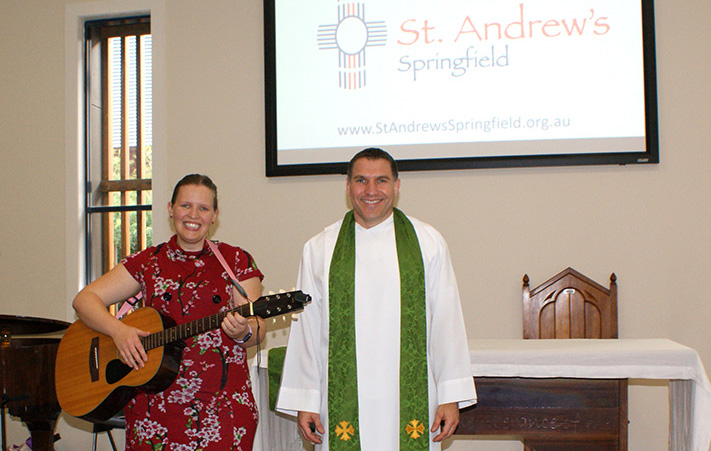Tough Questions: Why do we sing in church?
Reflections
“Anybody who has ever been to church will have noticed that there is quite a lot of singing, but is it essential and could we worship God effectively without it?” asks The Rev’d Charlie Lacey from The Parish of Springfield

Anybody who has ever been to church will have noticed that there is quite a lot of singing, but is it essential and could we worship God effectively without it?
When I first came to faith (and for a number of years afterwards), I struggled with sung worship. Singing was not something that I had ever enjoyed or engaged in and I found the cacophonous sound of my voice to be an embarrassing distraction. Notwithstanding, I now enjoy sung worship and see it as an essential part of our weekly gathering.
Human beings are made in the image of God and so it should not surprise us to learn that God sings. Zephaniah 3.17 states that God will rejoice over his people with singing; Jesus sang hymns with his disciples (Matthew 26.30); and Ephesians 5.18-19 exhorts believers to be filled with the Spirit, that they might sing to one another with psalms, hymns, and songs from the Spirit. It would seem that all three members of the Trinity are given to singing.
God sings and he has created humans to sing, especially as a means of worship. Many of the psalms are songs of praise that enjoin and even command God’s people to sing. For example, Psalm 96.2, which says, “Sing to the Lord, praise his name; proclaim his salvation day after day”.
At the risk of making unsubstantiated generalisations, when it comes to worship some people lead with their heads and others with their hearts. Those who lead with their heads tend to engage more readily with the readings and the sermon and those who lead with their hearts are more inclined towards the music and the singing. Every aspect of a Christian service is a form of worship, and each part enables us to connect with God in different ways.
Advertisement
Worship music has the capacity to awaken our emotions and move us in ways that other forms of worship may not do. Singing helps us to relax and engage every aspect of our being: mind, body and spirit. What is more, singing has a unique capacity to lead us into God’s presence in unison with others. In Revelation 5, we read of a song of praise in God’s throne room, which is sung by all the creatures in heaven and on earth. Our sung worship points forward to the glorious reality of worshipping God together with the whole of creation.
Finally, singing has the quality of enabling us to remember words. I think most of us have had the experience of getting a song “stuck in our heads”. Songs are a wonderful way of absorbing and remembering the truth of scripture and God’s promises in particular. Colossians 3.16 states that we should “teach and admonish one another with all wisdom through psalms, hymns, and songs from the Spirit”.
In conclusion, it is possible to worship God without singing. Indeed, we have been created to honour, glorify and worship God in every area of our lives. However, to omit sung worship from our services would greatly impoverish our attempts to draw near to God in the unity of the Spirit and it would prohibit us from engaging in worship with every aspect of our being.
Advertisement
There is singing in heaven of unimaginable beauty. If we are serious about building God’s kingdom here on earth, we should do our best to mirror the glory of heaven (albeit in a very deficient way):
Our Father, who art in heaven,
hallowed be thy name;
thy kingdom come;
thy will be done;
on earth as it is in heaven.
First published on the St Andrew’s, Springfield website in March 2023.
Editor’s note 16.03.2023: St Andrew’s, Springfield music coordinator Penny Howchin recently produced a worship music album called Floodgates. It is available via her website or search for it on your favourite music streaming platform.





